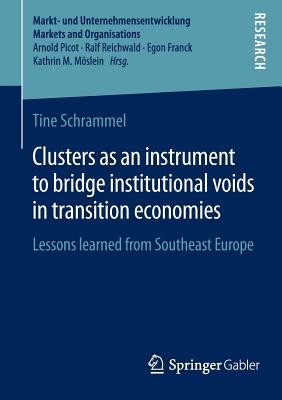
- We will send in 10–14 business days.
- Author: Tine Schrammel
- Publisher: Springer Gabler
- Year: 2014
- Pages: 267
- ISBN-10: 3658057246
- ISBN-13: 9783658057244
- Format: 14.8 x 21 x 1.6 cm, softcover
- Language: English
- SAVE -10% with code: EXTRA
Clusters as an Instrument to Bridge Institutional Voids in Transition Economies (e-book) (used book) | bookbook.eu
Reviews
Description
Transition economies, such as the countries in Southeast Europe, face an expeditious institutional transition from a centrally planned to a market economy. The state withdraws from its monitoring function, which results in institutional voids that affect the economy in general and small and medium sized enterprises (SMEs) in specific. With a qualitative case study approach Tine Schrammel develops a scheme to detect institutional voids as one source of competitive disadvantages of SMEs in transition economies. In a second step she demonstrates that specific cluster services bridge institutional voids and improve the competitive position of SMEs in environments of institutional voids. The findings add to the understanding of institutional voids and to the role of clusters in transition economies.
EXTRA 10 % discount with code: EXTRA
The promotion ends in 20d.22:27:48
The discount code is valid when purchasing from 10 €. Discounts do not stack.
- Author: Tine Schrammel
- Publisher: Springer Gabler
- Year: 2014
- Pages: 267
- ISBN-10: 3658057246
- ISBN-13: 9783658057244
- Format: 14.8 x 21 x 1.6 cm, softcover
- Language: English English
Transition economies, such as the countries in Southeast Europe, face an expeditious institutional transition from a centrally planned to a market economy. The state withdraws from its monitoring function, which results in institutional voids that affect the economy in general and small and medium sized enterprises (SMEs) in specific. With a qualitative case study approach Tine Schrammel develops a scheme to detect institutional voids as one source of competitive disadvantages of SMEs in transition economies. In a second step she demonstrates that specific cluster services bridge institutional voids and improve the competitive position of SMEs in environments of institutional voids. The findings add to the understanding of institutional voids and to the role of clusters in transition economies.


Reviews